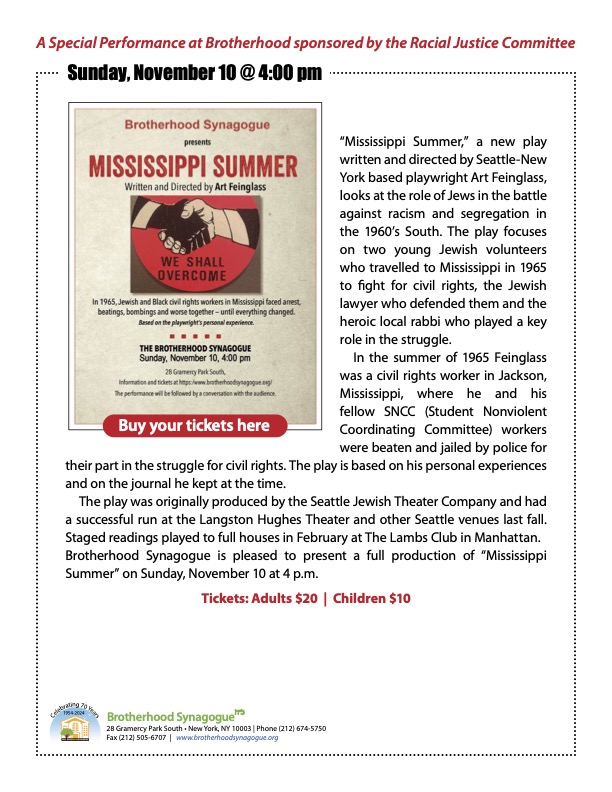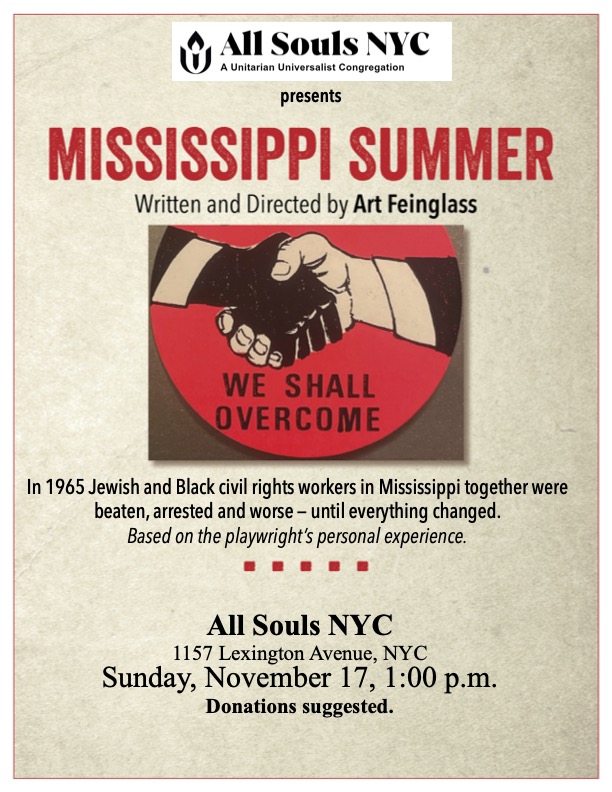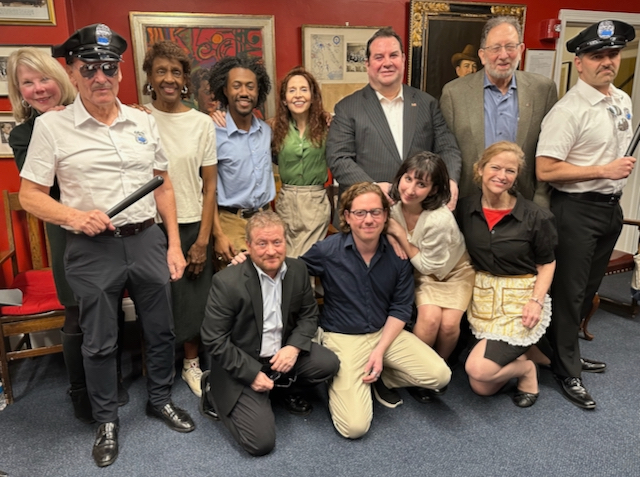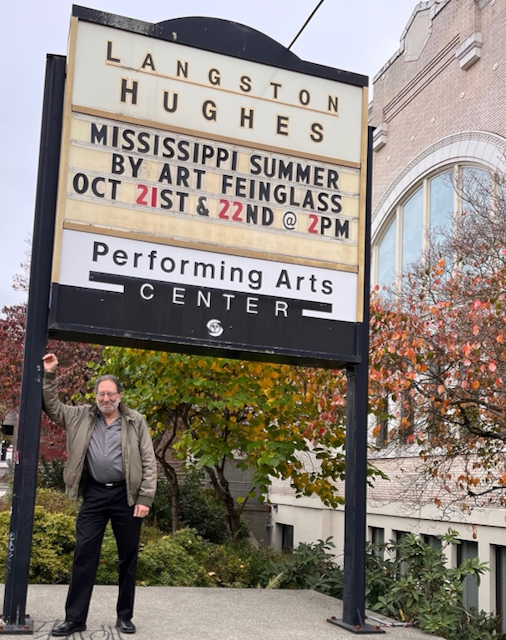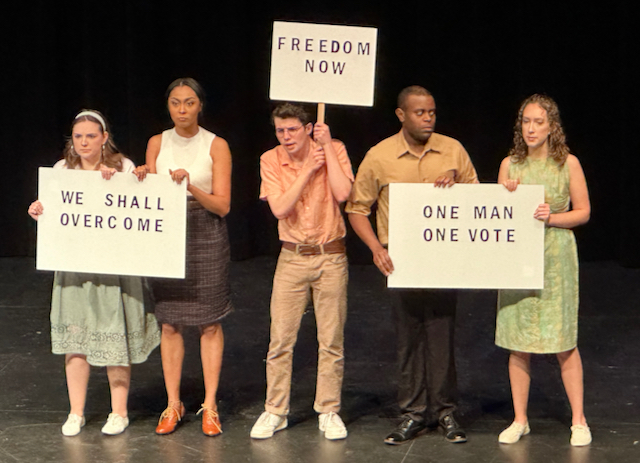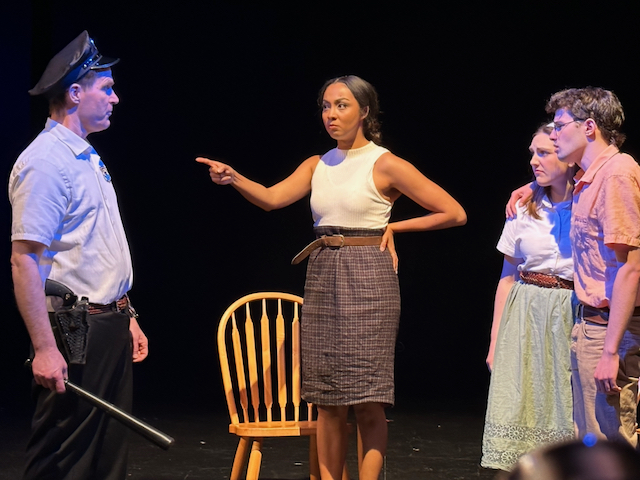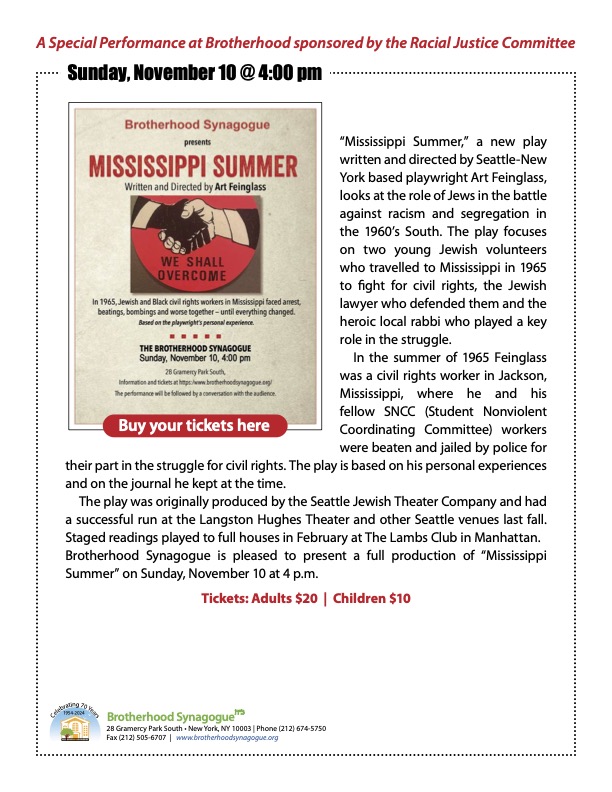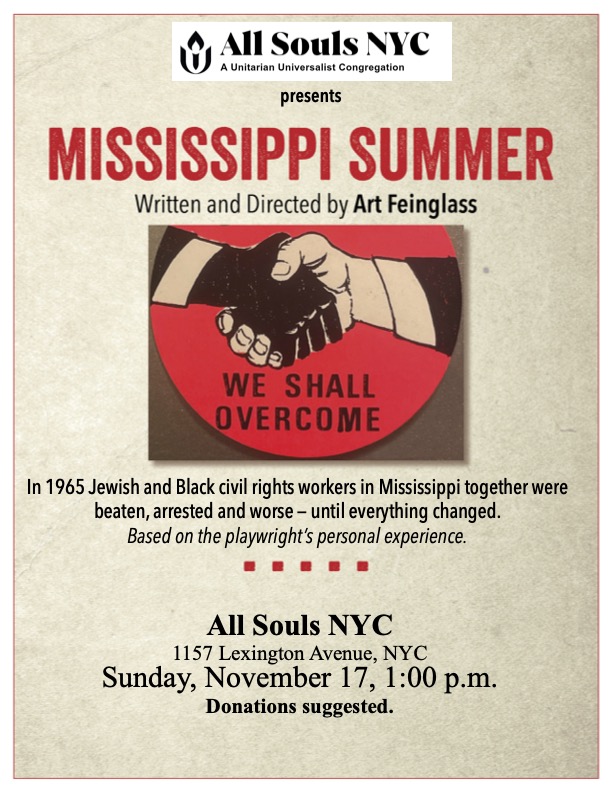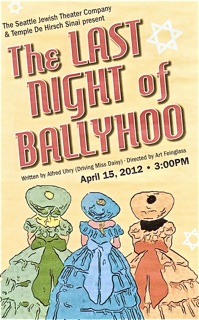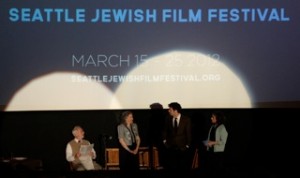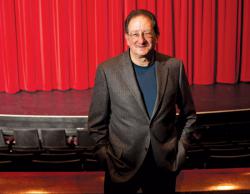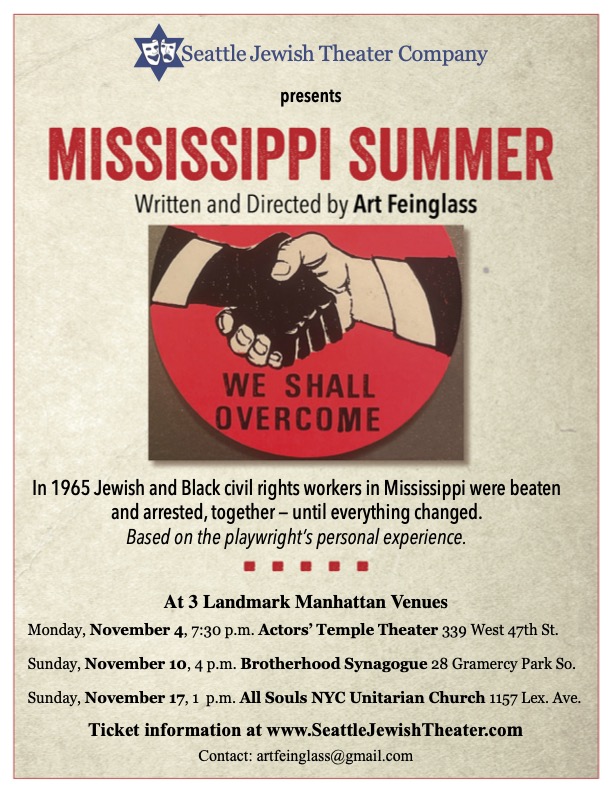
After a successful run in the Greater Seattle Area, a full production of “Mississippi Summer” is coming to these Manhattan Landmark locations.
Actors’ Temple Theater, 339 West 47th Street, Monday, November 4, 7:30 p.m.
Brotherhood Synagogue, 28 Gramercy Park South, Sunday, November 10, 4:00 p.m.
All Souls NYC, Unitarian Church, 1157 Lexington Ave. Sunday, November 17, 1:00 p.m
See Ticket Information Below
NEW YORK PREMIERE AT THE OFF-BROADWAY ACTORS’ TEMPLE THEATER

z
For tickets to the November 4 premiere performance at the Off-Broadway Actors’ Temple Theater: https://bit.ly/ActorsTempleTix
For tickets to the November 10 performance at Brotherhood Synagogue: https://www.brotherhoodsynagogue.org/event/missippi-summer
Staged Readings in February Were a Hit at The Lambs Club
“Mississippi Summer” premiered in Seattle at the Langston Hughes Theater in Fall 2023 and toured to packed houses throughout the Puget Sound area.
Mississippi Summer video clips – SD 480p
“Arrivals, A Sephardic-Ashkenazi Love Story” Video Now Available
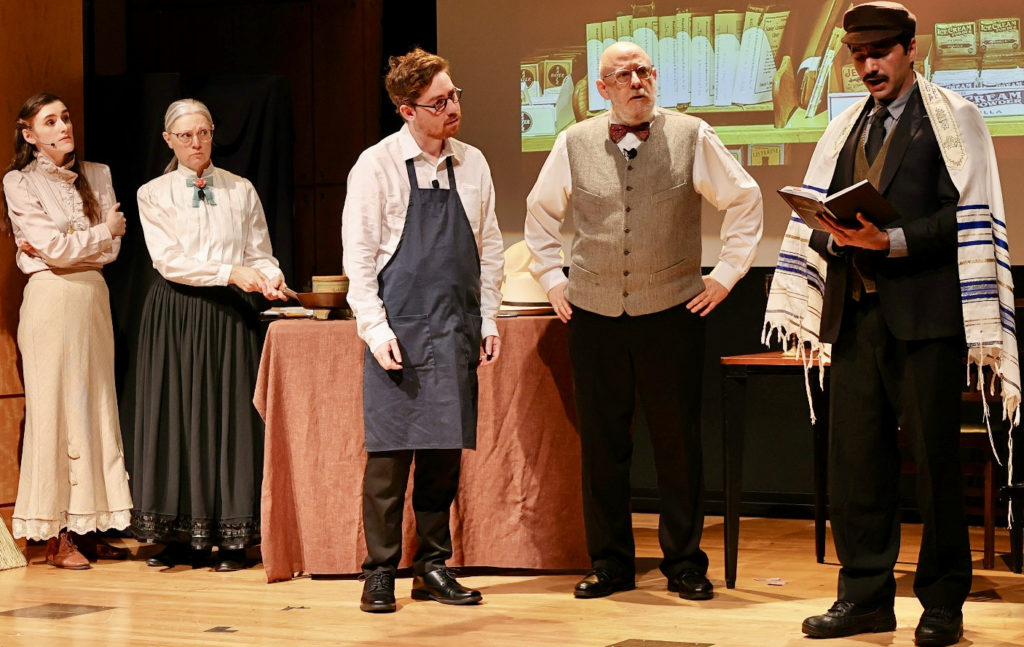
A hit with audiences in the Greater Seattle area and in New York at the Center for Jewish History, this historically based play tells the dramatic story of the first Sephardic immigrants coming to Seattle in 1902.
In order to share Arrivals A Sephardic-Ashkenazi Love Story as widely as possible, the Seattle Jewish Theater Company is making a professionally produced video of the full 90-minute performance available at no charge at bit.ly/3TOl6DA. For group screenings there will be a $200 fee.
A two-minute highlights trailer can be viewed, also at no charge, at bit.ly/Arrivalstrailer.
Writing in La Boz Sefaradi, Ethan Marcus, Managing Director of the Sephardic Jewish Brotherhood of America, called Arrivals, “Amazing!”
Audiences on both coasts have responded with laughter and tears to the moving story of Marco Cordova, an ambitious young Sephardic Jew from Turkey, who comes to Seattle in 1902 to make his fortune. The first Sephardic Jew to arrive in the city, he soon meets Bayla Keigelman, a fragile Ashkenazi girl fleeing a Russian pogrom. Despite the cultural gulf between them, they fall in love but find they must confront forces that declare their love forbidden.
More information about Arrivals, A Sephardic-Ashkenazi Love Story at SeattleJewishTheaterCompany@gmail.com.
